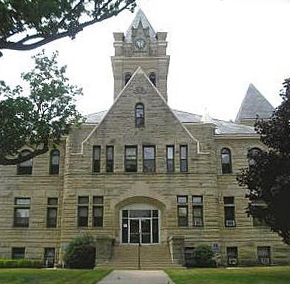 Pulaski County officials continue working on implementing a rental property inspection program, but exactly how to do that was a topic of discussion during Monday’s plan commission meeting. Director of Environmental Health Terri Hansen told members that she and Building Inspector Doug Hoover are repeatedly called to the same rental units, due to complaints about their condition. “It’s really sad when you see the kids, you guys,” she said. “They don’t want to live like that. It’s terrible. Makes you sick.”
Pulaski County officials continue working on implementing a rental property inspection program, but exactly how to do that was a topic of discussion during Monday’s plan commission meeting. Director of Environmental Health Terri Hansen told members that she and Building Inspector Doug Hoover are repeatedly called to the same rental units, due to complaints about their condition. “It’s really sad when you see the kids, you guys,” she said. “They don’t want to live like that. It’s terrible. Makes you sick.”
Hansen and Hoover shared details of homes infested with rats, bedbugs, and cockroaches; buildings with dirt floors; and a number of other issues. “Her and I a lot of times with Child Services, we have to go to certain places,” Hoover explained. “There’s just live wires hanging out, not even an outlet on it. We see sewage. How many times have we seen that before? Mold. You can’t even get up the steps because it’s broken down. It just goes on and on and on.”
Hansen detailed some of the more unusual living conditions she’s come across. “I saw two mobile homes duct-taped together to make a double-wide and a pool table in the middle of the living room floor to kind of hold it together, but there’s nowhere for their kids to sleep,” she told the plan commission. “Didn’t have a single bed.”
Hoover said that a rental inspection ordinance could help alleviate the problem, and protect landlords as well as tenants. “It’s just basic stuff, and one main thing is a written, signed lease,” he said. “Half of these people, they just jump in there, and they don’t even have a lease.”
The plan commission was presented with some preliminary ordinance language. Among other provisions, it would require landlords to get an occupancy permit, which would carry a fee.
But Community Development Commission Executive Director Nathan Origer didn’t think the plan commission had any legal say over such a measure, but could possibly help with the fee schedule. He suggested that the next step would be to go to the county council, since a big part of the proposal would involve making Building Department Assistant Karla Kreamer’s position full-time, to handle some of the extra work.
Hansen felt that the switch to full-time status would pay for itself, due to the new permit fee revenues and the decrease in overtime costs for her and Hoover. Origer recommended that a detailed cost comparison be put together for the county council and commissioners. Hoover and some of the plan commission members are expected to meet with the council on October 8.






















